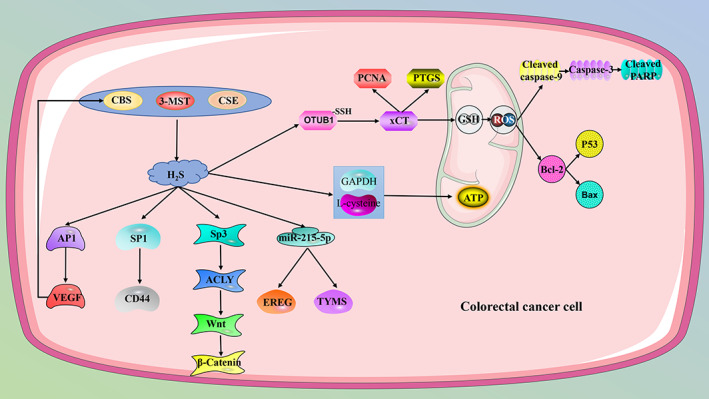FIGURE 3.

Hydrogen sulphide (H2S) synthase has different functions in colorectal cancer, which may be due to the crosstalk between different molecules and the high concentration of H2S in the intestinal environment. However, in general, inhibition of endogenous H2S can inhibit tumour growth. 3‐MST, 3‐mercaptopyruvate sulfurtransferase; ACLY, ATP citrate lyase; AP1, activating protein 1; ATP, adenosine triphosphate; CBS, cystathionine β‐synthase; CD44, a transmembrane glycoprotein and an important biomarker of cancer stem cells; CSE, cystathionine γ‐lyase; EREG, epiregulin; GAPDH, glyceraldehyde‐3‐phosphate dehydrogenase; GSH, glutathione; OTUB1, OTU domain‐containing ubiquitin aldehyde‐binding protein 1; PCNA, proliferating cell nuclear antigen; PTGS, prostaglandin‐endoperoxide synthase; ROS, reactive oxygen species; Sp1, specificity protein 1; Sp3, transcription factor Sp3; ‐SSH, S‐sulfhydration; TYMS, thymidylate synthetase; VEGF, vascular endothelial growth factor; xCT, SLC7A11.
